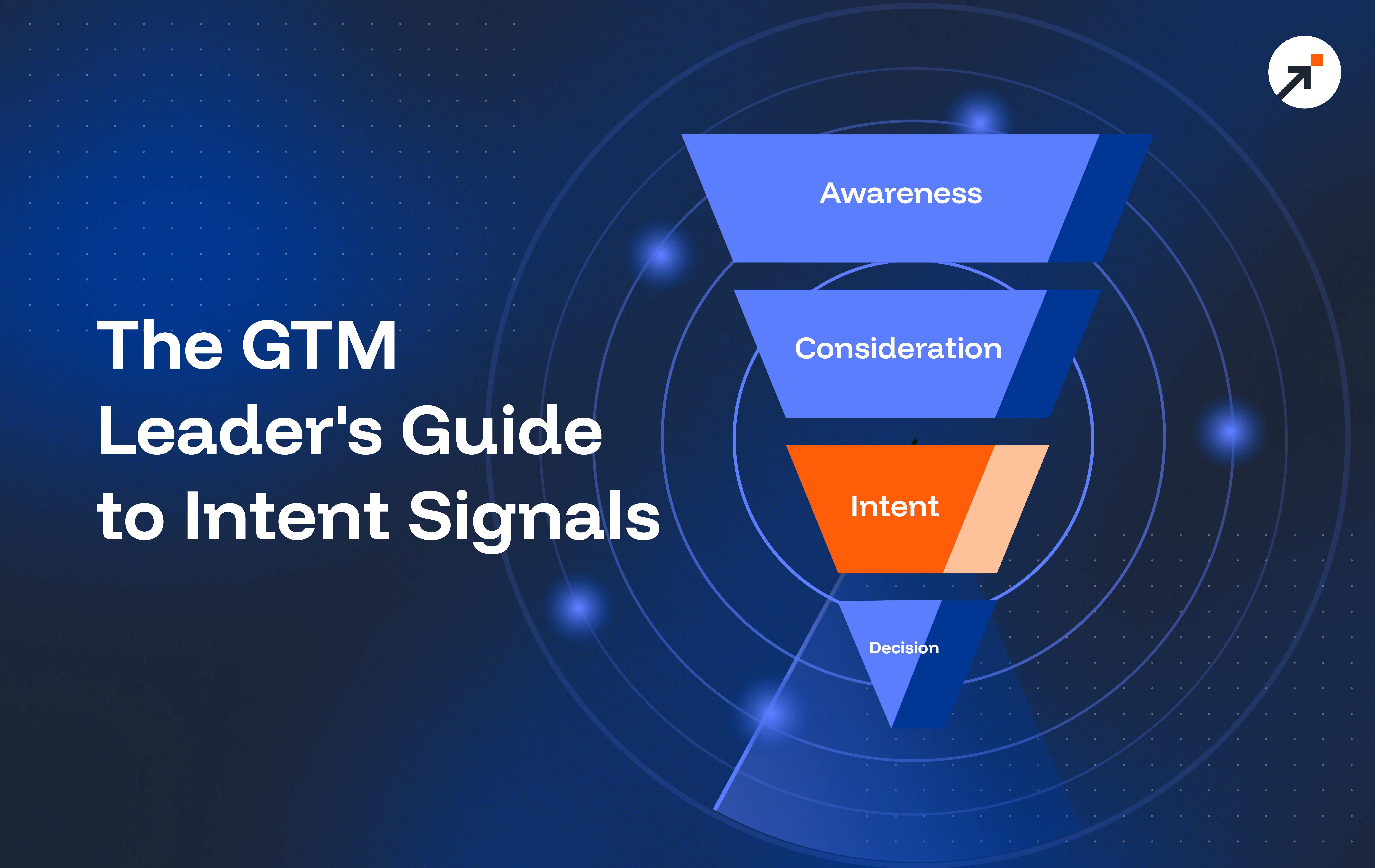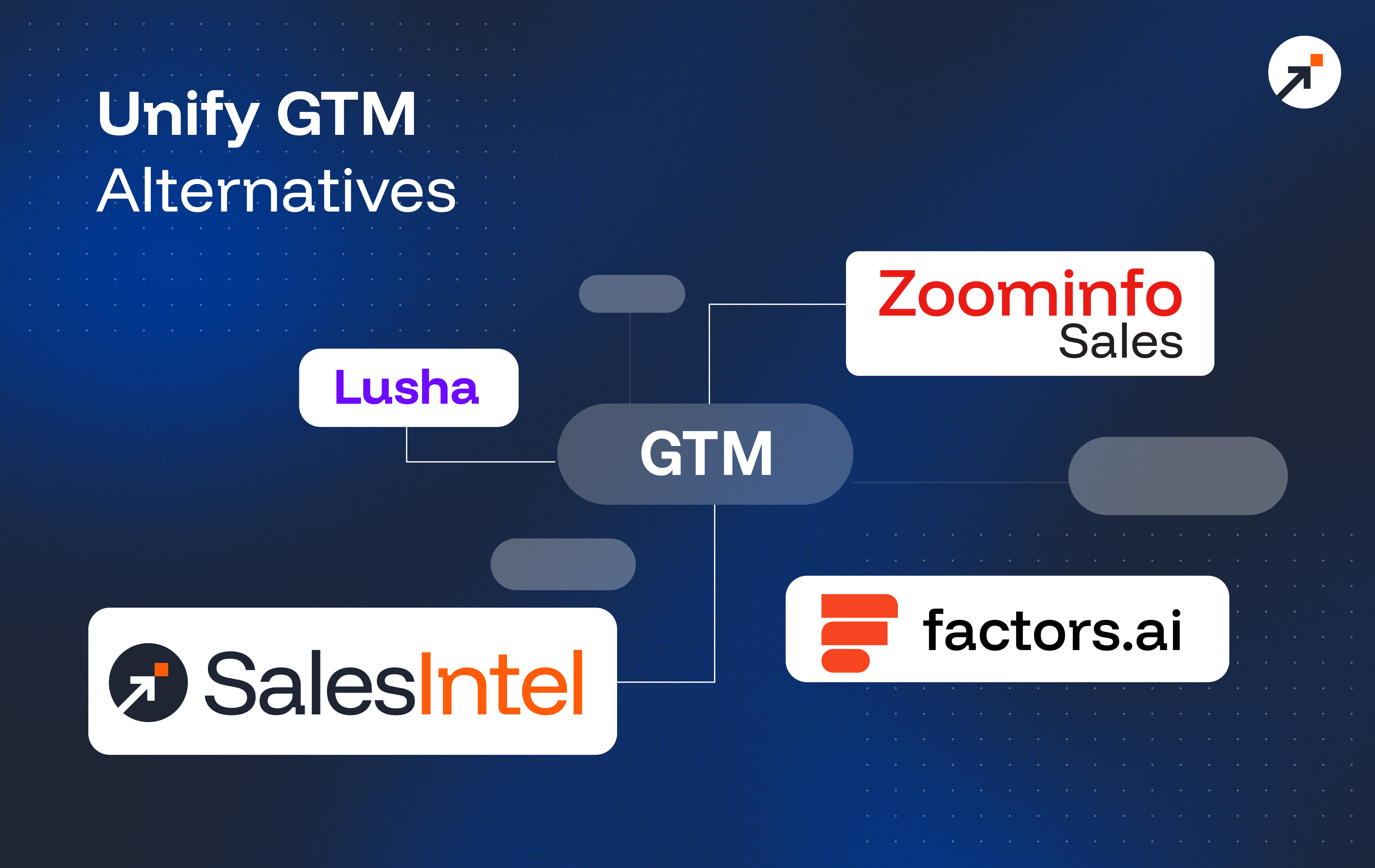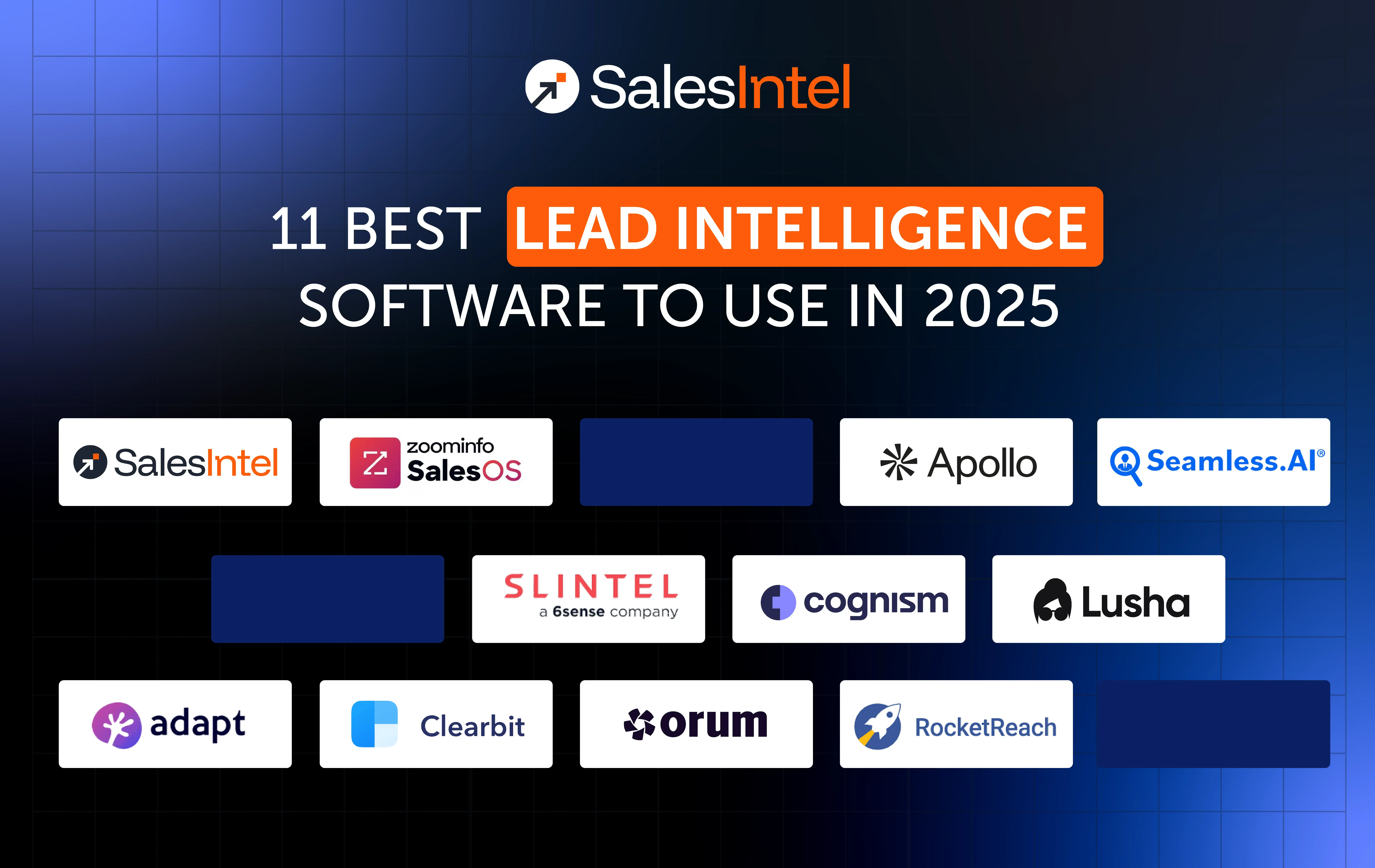In B2B sales, the ability to reach decision-makers quickly and efficiently can make or break your outreach efforts. However, getting past gatekeepers within an organization can be exhausting, and waiting for prospects to respond to cold emails is a surefire way to miss your revenue targets.
Primarily due to the rise of remote and hybrid work, decision-makers have become increasingly mobile and harder to reach through traditional channels (work phones, email, etc.). As a result, cell phone numbers have emerged as a critical tool for effective prospecting. These direct lines of communication can dramatically improve your ability to connect with potential customers, nurture leads, and ultimately close business.
However, acquiring and utilizing cell phone numbers for your outreach requires a careful balance of data quality, legal compliance, and thoughtful planning.
In this article, we’ll cover everything you need to know about effectively purchasing and using cell phone number lists in your outreach to ensure that your prospecting efforts are powerful and professional.
Key Considerations Before Buying Lists of Cell Phone Numbers
Buying a cell phone numbers list is a bit murky and fraught with potential risks; however, the rewards of connecting with more decision-makers are well worth the effort. When buying a cell phone number list, choosing the right provider can mean the difference between seeing success and ROI or angry “no’s” and even lawsuits.
Before you make any purchases, you should aim to gather as much information as you can about your future provider, including:
Data Accuracy & Recency:
On average roughly 30% of the total U.S. total workforce changes jobs every year. This makes the accuracy and recency of the phone numbers (or any B2B contact data for that matter) critical to the success or failure of your campaigns. A poorly maintained phone list will have you wasting time, energy, and resources calling folks who have moved companies, been promoted, or are no longer in the market for your solutions. To combat this, look for a data provider that uses rigorous verification processes and update processes to maintain the accuracy and currency of their data.
Privacy Compliance:
In a world of increasing consumer privacy, compliance with local and global protection laws is non-negotiable. Failure to comply with regulations can irreparably damage your brand image and result in millions in fines. Choose providers that are transparent about their compliance measures. In general, providers that do comply with any regulations will provide clear statements and documentation on how they ensure their data adheres to all relevant regulations. Here are a few to look out for:
- TCPA and CAN-SPAM Act: Verify that the provider complies with the Telephone Consumer Protection Act (TCPA) and CAN-SPAM Act. These regulations govern how businesses can contact individuals on their mobile devices and require specific permissions and opt-out mechanisms.
- GDPR and CCPA: These two regulations apply if you’re dealing with international clients or residents of California specifically, you have to make sure your provider’s data complies with the General Data Protection Regulation (GDPR) and California Consumer Privacy Act (CCPA). These regulations determine how the sale, handling, and use of personally identifiable information (like a cell phone number) can be used by a business.
Targeting & Filtering:
To get the most out of your cell phone number list, you should be calling buyers that fit your ideal customer profile (ICP). To achieve this, look for a provider that offers segmenting capabilities such as industry, job titles, company size, geographic region, etc. Most providers do have some degree of filtering. Some providers upcharge for filtering and some include it with the price of the subscription, so dig around and explore which provider has exactly what you need to be successful.
Provider Reputation:
Buying a cell phone number list is an exercise in trust. You’re staking your company’s reputation, time, and money on a provider delivering on their promise. In your search for the right b2b data provider, look for those with a proven track record of delivering high-quality data and ongoing support even after the sale. Review websites like G2, Capterra, Realreviews.io and Trust Radius are good places to start, but also read through a company’s case studies to see how they’ve helped companies like yours. Reach out to your professional network for information from colleagues or acquaintances who have worked with a specific provider previously.
Pricing:
Of course, we’re always proponents of quality over everything, but realistically, budgets are a large factor in any purchase decision. When looking to onboard any potential provider, ask about or research their pricing plans. Do they charge a flat monthly fee for unlimited access? Is their pricing tiered or usage-based? Do they charge extra for integrations or specific use cases? All of these questions will help you understand if they will be a good fit for your needs as your company continues to grow.
Top 5 Providers of B2B Cell Phone Number List
Now that we’ve established what separates the good from the bad, here are a few top providers of cell phone number list you can utilize for B2B outreach:
1. SalesIntel
Overview
SalesIntel has recently positioned itself as a Signal-First Agentic Pipeline Generation Platform, moving beyond just being a data provider. Their core value proposition remains the high quality of their mobile and direct-dial B2B phone numbers, backed by a rigorous human verification process every 90 days, which they guarantee to be up to 95% accurate. This focus on accuracy is designed to increase sales connection rates and ROI.
Features
- Human-Verified Mobile/Direct Dials: SalesIntel claims to have over 54 million verified mobile and direct numbers, which are manually re-verified by a large research team. This process is applied across their entire premium database.
- Signal360 Platform: This is their new suite for identifying accounts that are actively in-market. It tracks thousands of buying signals (predictive, intent, technographics) to prioritize prospects for the sales team.
- Agentic AI (GTMCanvas): Features for building automated workflows from signal detection to contact/buying group identification.
- Unlimited Data Access: A key differentiator is their move to an unlimited data model for contacts, direct dials, mobile numbers, and enrichment within their core platform, aiming to remove the friction of credit limits.
- Research On Demand (ROD): Users can submit requests for specific hard-to-find contacts, and SalesIntel’s research team will find and verify the details (often with a 2-hour Service Level Agreement).
- Integrations: Strong integration with major CRM and sales engagement tools.
Pricing
SalesIntel operates on a Quote-Based (Annual Contract) Model. They emphasize an “Unlimited Everything” structure for their contact and mobile data to simplify budgeting and encourage high usage. The final price is highly customized based on:
- Number of Users/Seats.
- Required Geographic Coverage and Data Depth.
- Add-on Modules (e.g., Intent Data, VisitorIntel/FormsIntel, or the full ABM suite).
2. ZoomInfo
Overview
ZoomInfo is the Enterprise GTM Platform defined by its massive scale. It boasts one of the largest B2B contact databases, which includes millions of direct-dial phone numbers (including mobile/cell). Its strategy is to provide a comprehensive, all-in-one suite of AI-driven tools that go beyond just contact data.
Features
- Vast Database Scale: Offers the largest overall database, ensuring broad coverage across companies and contacts.
- Direct Dials/Mobile Numbers: Provides a high volume of direct-dial numbers as part of its extensive profile data.
- Intent Data: Leveraging a massive publisher network to provide real-time intent signals, helping sales teams prioritize accounts that are actively researching solutions.
- AI-Powered Updates: Data is largely maintained and updated through automated, real-time AI processes and a contributing user network.
- Advanced GTM Tools: Includes Org Charts, conversation intelligence, AI assistants (ZoomInfo Copilot), and complex filtering based on firmographics and technographics.
- Enrichment: Tools for automatically updating and cleaning existing CRM records.
Pricing
ZoomInfo’s pricing is customized, complex, and not publicly disclosed, based on factors like the number of user licenses, the volume of data credits required, and the specific mix of features (e.g., Sales, Marketing, Recruitment, Intent Data). Their plans are typically structured as high-cost, annual contracts, making it a premium solution often more suitable for mid-market and enterprise teams.
3. Cognism
Overview
Cognism is the market leader for GDPR and CCPA compliant B2B data, with a focus on deep and accurate coverage in Europe and North America. Their key selling point for mobile outreach is Diamond Data®, a premium subset of contacts that are actively phone-verified for high connect rates.
Features
- Compliance-First: Maintains a database that is scrubbed against DNC lists and adheres to GDPR and CCPA regulations, making it the safest choice for European outreach and cold calling.
- Diamond Data®: These are their highest-quality, human-verified mobile numbers, specifically checked to ensure they are current and accurate for connecting with key decision-makers.
- Strong EMEA/Global Coverage: Excellent depth and accuracy, particularly in the UK and wider European markets.
- Flat-Fee Access: Generally offers a model with unrestricted views and individual exports (subject to fair usage), which removes the anxiety and limitations of a credit-based system.
- Intent Data: Integrates third-party intent data to help time outreach perfectly.
- Browser Extension: A powerful extension for quickly finding contact data while prospecting on LinkedIn or corporate websites.
Pricing
Cognism pricing is customized based on business needs, and while the exact cost is not public, it includes two main packages:
- Grow (essential quality data for prospecting)
- Elevate (includes all Grow features plus advanced intelligence and signals like Intent Data and Technographics).
The final price depends on the number of licenses and any chosen add-ons, with no hidden platform fees.
4. RocketReach
Overview
RocketReach is a high-volume lookup and enrichment platform known for its large database and ease of use, particularly its popular browser extension. It is often favored by individual sales professionals and small teams for quick, on-the-fly prospecting and appending contact information (including business mobile numbers) to existing lead lists.
Features
- Bulk Enrichment: Strong capability to upload existing lead lists (names/companies) and append missing data, including emails and business mobile numbers.
- Browser Extension: Allows for instant lookup of contact information directly on LinkedIn or company websites, streamlining the prospecting workflow.
- Large Database: Access to a vast quantity of emails and phone numbers globally.
- Advanced Search: Features to filter by firmographics, technographics, and job titles.
Pricing
RocketReach’s pricing is structured across multiple tiers, with costs depending on whether you choose monthly or annual billing. The monthly pricing plans are:
- Essentials at $39/month
- Pro at $99/month
- Ultimate at $249/month
Choosing an annual plan significantly lowers these costs (e.g., Essentials drops to $29.40/month or $353/year). All plans include a set number of lookup credits, and custom team plans are available starting at an annual cost of $6,000.
5. Klover Data
Overview
Klover Data is a specialized B2B provider focused on highly targeted business owner and high-level decision-maker cell phone lists. Their unique focus is on providing lists that have been specifically scrubbed for U.S. DNC compliance, making them ideal for targeted cold-calling and SMS campaigns.
Features
- Business Owner Focus: Data is curated for reaching decision-makers and business owners/C-suite directly on their mobile phones.
- TCPA/DNC Compliance: A major differentiator is the promise of DNC scrubbing to reduce legal risk associated with mobile telemarketing in the U.S.
- Verified Mobile Numbers: Lists are manually verified for high accuracy to ensure effective direct outreach.
- Targeted Lists: Good for niche campaigns that require hitting a very specific, high-value demographic.
Pricing
Klover Data operates on a custom, non-public pricing model for its sales leads and data services, such as Precision Lead Generation and Data as a Service (DaaS). The actual cost is determined by factors including the lead category (e.g., Financial, Insurance, B2B), the desired volume of data, and the specific data solutions or features needed (like Cleansing & Enrichment). Potential customers must request a free quote or call the company to get a price for their customized lead strategy.
Best Practices for Using Cell Phone Numbers in B2B Outreach
Once you’ve chosen your provider and secured your list of cell phone numbers, now the real work begins.
Here are some best practices to follow to maximize the effectiveness of your outreach:
Personalize Your Outreach: By now, this should be a given for any prospect outreach, but especially if you’re taking the time to call decision-makers on the phone. Make sure you research the company and contact before reaching out (not during the call).
Use the prospect’s name and reference relevant details about their company, industry work history, and interests to tailor your pitch to address specific pain points or opportunities you’ve identified. This will help show that you’ve done your homework and understand their business context. You should also have a clear and concise value proposition ready as well as answers to common objections or questions.
Lead with Value: This goes hand-in-hand with the previous point – every interaction you have with your prospect should offer value. Share insights, industry trends, case studies, webinars, or other useful content that can help them solve their business challenges.
Focusing on building long-term relationships and demonstrating a genuine interest in their success rather than just making a quick sale will help solidify you as a trusted partner rather than just somebody trying to close a deal.
Be Mindful of Timing: Timing your calls to the right time of day and day of the week can be a make-or-break factor in your phone outreach. Research from CallHippo found that among the more than 15,000 calls studied across 30+ countries, by far the best time to make a B2B cold call is Wednesday between 3 pm and 5 pm.
You should also take into account your prospect’s time zone, not just your own. It may be 3 pm where you are, but a prospect across the country (or globe), may be fast asleep or sitting down to family dinner (i.e. times you absolutely do NOT want to be calling).
Build a Multi-Channel Approach: Phone outreach is just one component of a well-built prospect engagement strategy. Layering phone calls into your outbound email sequence or social media outreach and coordinating with marketing to run display or social media ads with consistent messaging can help build a cohesive experience and reinforce your value proposition. For example, your full motion could look something like this:
-
- Send an initial outreach email introducing your company and solution.
- Follow up the email with phone calls to schedule a demo.
- If the prospect doesn’t answer, send a text message.
- Your marketing team runs a LinkedIn ad campaign against the list of prospects who didn’t initially convert.
- Send a LinkedIn message to complement your email outreach.
The more channels and touchpoints you can create with prospects, the better chance of engaging and converting them.
Be Persistent, But Not Pushy: Here again, the same rules of sales apply, don’t rely on a single contact attempt. A study by HubSpot found that 80% of sales require five follow-up calls after the initial contact, but 44% of salespeople give up after one. If the prospect doesn’t answer, try again in a day or two, or at a different time of day (still within working hours) to demonstrate tenacity and build the relationship over time.
However, one word of caution here. Respecting contact preferences and opt-out requests is critical to maintaining good standing in the market. If a prospect does not want to be contacted, allow them to do so by providing easy-to-use opt-out mechanisms in all of your communications and honoring those requests quickly.
How SalesIntel Can Help
At SalesIntel, we’re proud to offer the highest number of direct dials and human-verified B2B contacts in the industry. With a comprehensive database of over 95 million verified business contacts and advanced data enrichment capabilities, we strive to provide accurate and affordable contact data to help supercharge our clients’ prospecting and lead-generation efforts. Our proprietary combination of automation and real human researchers allows us to reach 95% data accuracy for all published contact data while continuing to scale up our number of contacts.
From Dials to Dollars
Utilizing cell phone numbers for B2B outreach is emerging as a powerful tool in any sales kit, offering unparalleled access to decision-makers and the potential to significantly accelerate your sales cycle. However, acquiring a high-quality list of cell phone numbers is often easier said than done.
By considering a multitude of factors, including privacy compliance, recency, filtering, pricing, and provider reputation, you’ll ensure you’re building your outreach campaigns on high-quality data. Furthermore, by personalizing your outreach, leading with value, timing your calls appropriately, and being persistent with follow-up, you’ll be perfectly positioned to engage more decision-makers and build strong relationships with potential customers. With the right approach, cell phone outreach can be a cornerstone of your B2B outreach strategy, opening doors to new opportunities and driving sustainable business growth.
If you’d like to learn more about how SalesIntel can provide you with a targeted, accurate, and privacy-compliant list of B2B cell phone number lists, book a demo today!
FAQs
How does SalesIntel verify its B2B contact data?
SalesIntel uses a two-pronged verification approach combining advanced algorithms for initial checks with rigorous manual verification by our in-house research team of 2,000+ data researchers. This dual process ensures contact data, especially direct-dials and mobile numbers, remains fresh and accurate with re-verification occurring every 90 days.
What is the data accuracy guarantee for SalesIntel’s cell phone numbers?
SalesIntel guarantees 95% accuracy for our human-verified mobile numbers, which are re-verified every 90 days to maintain current information. We provide data credits for any inaccuracies beyond this threshold, ensuring you receive the quality you pay for and can rely on our data for critical outreach campaigns.
What’s the difference between SalesIntel and competitors like ZoomInfo or Lusha?
While SalesIntel, ZoomInfo, and Lusha all provide B2B contact data, SalesIntel’s key differentiator is our commitment to data quality through human verification rather than primarily crowd-sourced or machine-verified data. Our research team re-verifies every direct-dial and mobile number every 90 days with a 95% accuracy guarantee, resulting in higher connect rates and better campaign ROI for customers.
Can I integrate SalesIntel data with my CRM (e.g., Salesforce, HubSpot)?
Yes, SalesIntel offers robust integrations with leading CRM and sales engagement platforms, including Salesforce, HubSpot, Marketo, SalesLoft, and Outreach. Our integrations enable seamless data export and enrichment, allowing you to push accurate contact and company data directly into your existing workflows, saving time and improving team efficiency.
What are the best providers for B2B cell phone number lists, and what factors should be considered when selecting one?
The best providers deliver accurate, verified, and compliant contact data with key factors including data accuracy and freshness, coverage of your target market, human verification processes, and compliance with regulations like TCPA and GDPR. SalesIntel prioritizes human verification, re-verifying data every 90 days to ensure high-quality B2B cell phone numbers with 95% accuracy for effective sales and marketing outreach.
Is it legal to buy and use cell phone number lists for marketing?
The legality of using purchased cell phone number lists depends on your location and recipient locations, with regulations like TCPA in the U.S. and GDPR in Europe imposing strict consent requirements for telemarketing. It is crucial to consult with legal counsel and use data providers who prioritize compliance to avoid significant penalties, always ensuring proper consent before initiating contact.
How much do B2B cell phone number lists typically cost?
The cost of B2B cell phone number lists varies widely based on data quality, volume, target audience specificity, and provider, with some charging per contact and others offering subscription-based models. High-quality, human-verified data like that from SalesIntel may have a higher initial cost but typically yields better ROI due to higher accuracy, connect rates, and reduced wasted outreach efforts.
How can I acquire individual cell phone numbers for personal or business use (e.g., virtual, vanity, carrier numbers)?
Acquiring individual cell phone numbers for personal use involves direct carrier subscriptions or virtual number services, while businesses can purchase virtual or vanity numbers from specialized providers to enhance brand presence. SalesIntel specializes in B2B professional contact data for sales and marketing outreach, not individual personal or vanity numbers for general business communications.




